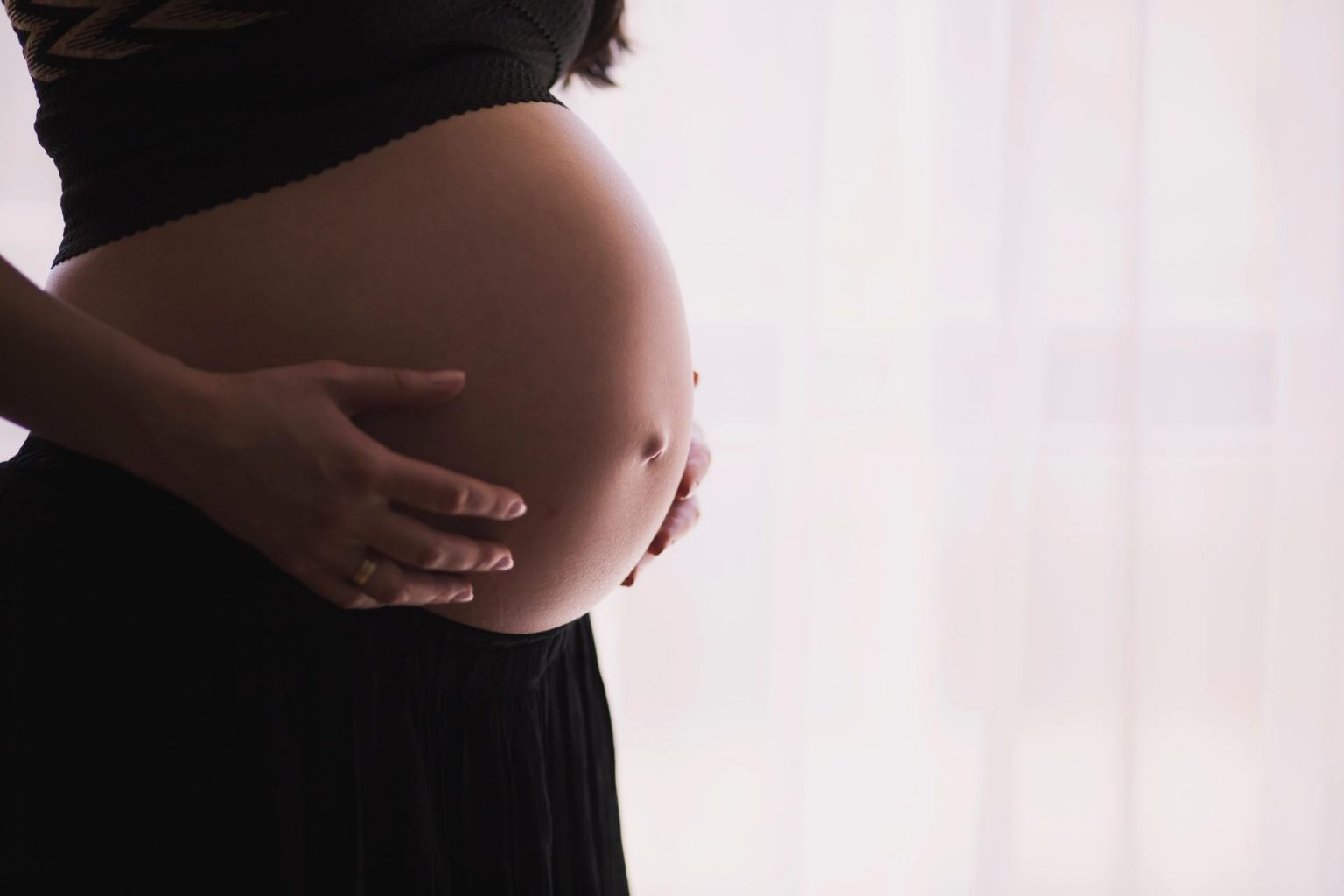For some pregnant women, gaining weight is psychologically unbearable. It’s called ‘Pregorexia’ and it’s risky business for expectant moms.
We’ve all lamented about the extra pounds needing to be dumped post-birth, but there are some women who admit to refusing to gain much weight during pregnancy. Perhaps inspired by über-thin celebs or a deep-seated eating disorder, it’s apparent that a disturbing trend is emerging.
‘Pregorexia’ is the term coined to describe the condition of women who limit calories and exercise to extremes during pregnancy. A quick browse through online diet forums shows this eating disorder is gaining in popularity.
 Some disturbing posts:
Some disturbing posts:
- “I’m only eating oranges this week. I’ve already gained five pounds.”
- “I refuse to look pregnant this time. I’m still wearing pre-pregnancy jeans and I’m in my second trimester.”
- “No one can tell I’m pregnant. I love morning sickness. It keeps me from eating.”
But pregorexia sufferers are not intentionally starving their unborn child. Some believe the disorder is linked to their history of eating disorders, or even guilt and a feeling of unworthiness that is subconsciously preventing them from eating.
Maggie Baumann, a mother, family therapist and eating disorder expert in Irvine, Calif., recently revealed that she had been anorexic during both her pregnancies more than 20 years ago.
Though during her first pregnancy she gained an average amount of weight, she was frantic to take it off afterwards and only gained 18 pounds during her second pregnancy. It was barely apparent she was expecting. The backlash from her “coming out” was brutal. Comments flooded her website and although many people understood that an eating disorder is not something one can simply turn off, the responses rapidly became hateful.
“All I can say is, what selfish thoughts were you thinking? You are just self absorbed with being skinny/sexy and worried about your body…what about your CHILD!?” said one parent. “… No excuse for making the child suffer. This is a case of women being too stupid to care for themselves,” said another.
Maggie says that although it appears ‘pregorexia’ is a selfish, uncaring act of vanity, she believes these women do care about their unborn babies with all their hearts. “The problem is they don’t care about themselves enough to take care of themselves in order to take care of the baby.”
Maggie believes her obsession with exercising and limiting food during her pregnancies was tied to an abortion she had a few years prior. “I felt this huge sense of regret, guilt and anger at myself because I believed I was weak that I didn’t keep this baby or give it up for adoption. I was not fit to be a mother,” says Maggie. “However, the crazy thing is with both my well-being Susan Pennell-Sebekos pregnancies I did the opposite of what a mother should do to protect her baby while expecting. I punished myself by not feeding myself enough and tried to exercise off the calories I did eat in attempt to feel control. I know this doesn’t make sense, but that’s how an eating disorder works.”
Maggie estimates she ate about 1,000 calories a day while pregnant. “I was expending probably 700 to 800 calories in a workout, so I was definitely in a calorie deficit.” The journal Canadian Family Physician warns that women who are anorexic during pregnancy have babies with lower Apgar scores and lower birth weights.
Complications associated with eating disorders during pregnancy:
- Premature labour
- Low birth weight
- Stillbirth or fetal death
- Likelihood of caesarean birth
- Delayed fetal growth
- Respiratory problems
- Gestational diabetes
- Complications during labour
- Depression
- Miscarriage
- Preeclampsia
- Infections
Maggie recalls that during her second pregnancy she began bleeding after a workout. “My doctor told me a miscarriage was likely. He told me to stop all exercise immediately and get bed rest.” She followed his advice for three days, but she returned to the pattern of activity that numbed her to any problems: exercising and under-eating. “Of course, I did not change the way I ate, because I did not think anything was wrong with it. I always ate. I just didn’t eat enough.”
Maggie says despite her regime of exercising and dieting, the pregnancy was proceeding normally, until the seventh month. “My doctor thought my baby was experiencing intrauterine growth retardation,” she recalls. “My baby was too small and wasn’t getting enough nutrients. My doctor instructed me to stop all exercise for the remainder of the pregnancy and to eat more. At that point, my baby bump was barely visible.”
When she finally delivered her second child by C-section, she was 5’ 8” and weighed just above 135 pounds. Her daughter was born weighing 5 pounds 11 ounces and was fine until about four months of age. “Then she started to have seizures, her eyes would roll back into her head and her head would bob up and down,” says Maggie. Her doctor thought her baby might have epilepsy. “The doctor gave me a brochure that stated one of the causes of epilepsy is poor nutrition in the womb.” Later, her daughter was diagnosed with ADD. Her doctor believes it’s possible that poor nutrition in the womb contributed to these neurological conditions.
Maggie has been treated for her eating disorders and regrets her actions while she was pregnant. “I can never take away what I did, but I can and have forgiven myself for these actions.” She’s frank with her now grown and healthy daughters, and hopes her being candid about her eating disorder will help other women to seek help.
Warning signs
- Having preoccupation with the number on the scale and weight gain
- Exercising excessively
- Being highly critical of one’s body
- Gaining only a minimal amount of weight
- Dieting or restricting calories
- Having a smaller than average ‘baby bump’
- Exhibiting signs of depression
- Having a history of eating disorders
How you can help
Someone with an eating disorder will try to hide their actions and be very secretive, so seeing the signs are hard. “My doctor never knew the extreme exercise routine I followed. No one knew,” says Maggie. “I kept my calorie restriction, my exercise intensity and extended workouts a secret, even from my husband.” Maggie offers the following advice: Partners should go to prenatal doctor’s appointments to make the doctor aware of any possible signs. Approach your friend or loved one with concern and support rather than accusations of being selfish or not caring for the baby. Find professionals who treat pregnant women with eating disorders. Assure the mom-to-be that you care about her and the baby’s well-being and you are not judging her.
Healthy weight
According to the Society of Obstetricians and Gynaecologists of Canada
(SOGC), “Women may not need to increase their caloric intake during the
first trimester, but should eat to satisfy their appetite – ideally,
three meals and three snacks, spread throughout the day. By the last
trimester, even if a woman feels less hungry because her growing baby is
putting pressure on her stomach, she still has increased needs. She
should continue eating healthy foods, and not forget the three meals and
three snacks.” Healthy weight gain ranges from 15 pounds for women who
are already overweight to 35 pounds for women who have an average
weight.









